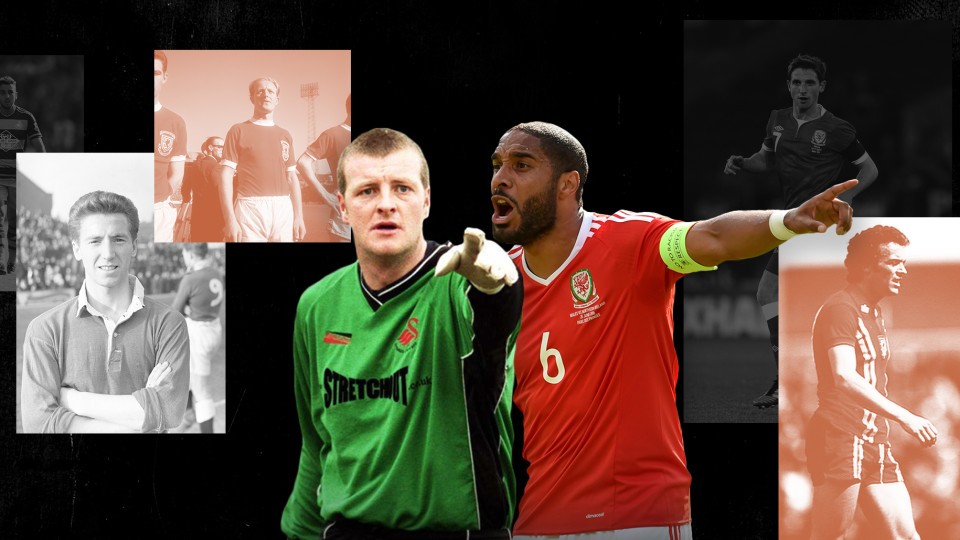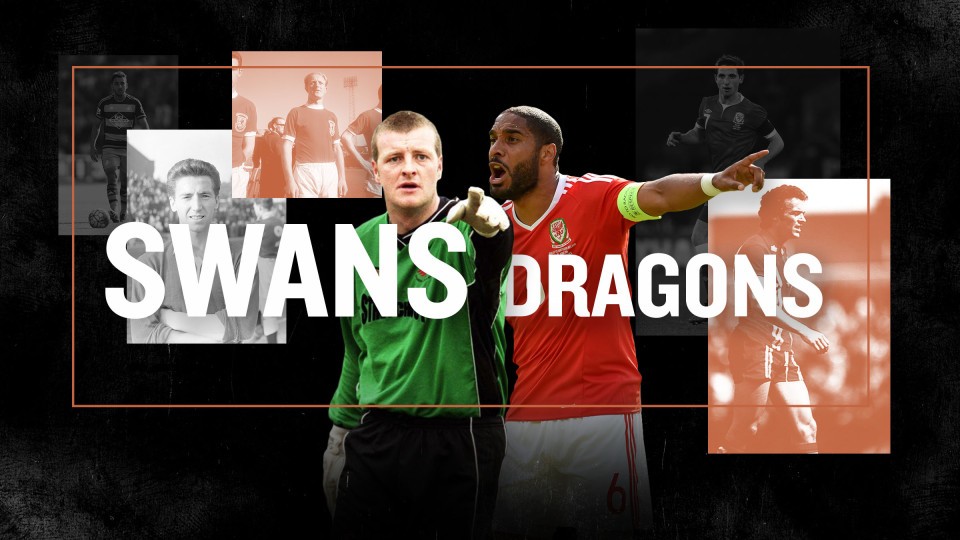Swans and Dragons: Roy Paul
In a regular website feature, we look back at former Swansea City players who have also turned out for Wales at full international level.
Born in Ton Pentre on April 18, 1920, Roy Paul left school at 15 and, like many boys from the Rhondda Valley area at that time, became a miner.
Not long after that, though, he was spotted by Swansea Town playing for local side Ton Boys Club and was signed – first as an amateur then as a professional – in 1938.
Due to the outbreak of World War II, Paul had to wait eight years to make his league debut for the Swans, which came in a 3-2 defeat to West Bromwich Albion at Vetch Field in August 1946.
Over the next four years, he made a total of 159 league appearances for the Swans, scoring 11 times, and was part of the side that won the old Third Division South title in 1948-49.
Recognition for Paul’s fine displays at club level came in October 1948, when the defender was handed his international debut for Wales against Scotland in the British Home Championships.
He also started in the Dragons’ other matches in that season’s tournament as they lost 1-0 to England before beating Northern Ireland 2-0 in Belfast.
Paul rarely missed a match for Wales from his debut through to his final appearance in 1956. In that time, he won 33 caps – with his one and only goal coming in a 5-1 victory over Belgium in November 1949.
In January 1950, Swansea Town faced an away trip to Arsenal, league champions just two years earlier, in the third round of the FA Cup.
And, despite going down to a 2-1 defeat, the Swans produced a terrific performance against the team that would go on to win that season’s competition.
Paul’s display in particular impressed then Gunners manager Tom Whittaker, who tabled an offer for the defender shortly after the game, but it was turned down by Swans boss Billy McCandless.
Along with the likes of Neil Franklin, Bobby Flavell, Billy Higgins, George Mountford and Charlie Mitten, Paul headed across the Atlantic to attend trials with clubs from Colombia who, at the time, were not required to pay transfer fees as their governing body was not affiliated with Fifa.
Bogota giants Millonarios reportedly offered Paul a £3,000 signing-on fee and a £150 per month contract – far in excess of the £12 per week maximum wage in British football at that time.
Paul only stayed in Colombia for 10 days, having been put off by seeing the pitches at stadiums “surrounded by barbed wire”.
In his autobiography, A Red Dragon of Wales, he compared conditions to “a concentration camp, or maybe the monkey-house in the zoo”.
McCandless was angered by Paul’s trip and put him on the transfer list, while it also came as a surprise to his wife, who thought he was in Blackpool at the time.
Manchester City eventually secured his services for £19,500 – a then British record transfer fee for a half-back.
Paul joined a City side that had just been relegated to the old Second Division. He made his debut for the club against Preston North End on the opening day of the 1950-51 season and appeared in all but one of the Citizens’ matches as they achieved promotion back to the top flight.
Paul skippered City for much of his time at Maine Road, between 1950 and 1957, scoring nine goals in 293 appearances during that period.
He captained the Citizens in their FA Cup Final defeat by Newcastle United in 1955 and, later that year, was part of the Wales side that beat England for the first time in 18 years thanks to goals from Derek Tapscott and Cliff Jones.
In April 1956, Paul missed a penalty in Wales’ 1-1 draw with Ireland in the Dragons’ final match of that season’s British Home Championship.
A victory in what proved to be his last international appearance would have seen Wales claim the trophy but, for the first and only time in the competition’s history, there was a four-way tie.
However, a month later, he led Manchester City to a 3-1 victory over Birmingham City in the FA Cup final best remembered for the heroics of goalkeeper Bert Trautmann, who carried on playing despite suffering a broken neck.
Paul retired from professional football in 1960, playing on and then coaching at non-league level before becoming a lorry driver. He passed away on May 21, 2002, aged 82.
Paul's nephew was also a talented footballer who played for the Swans. His name? Alan Curtis.

